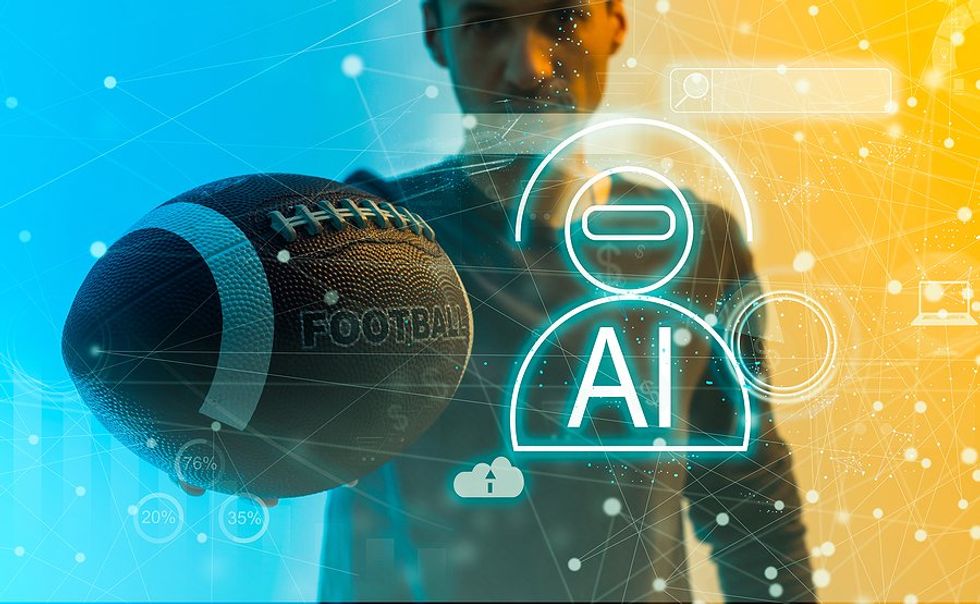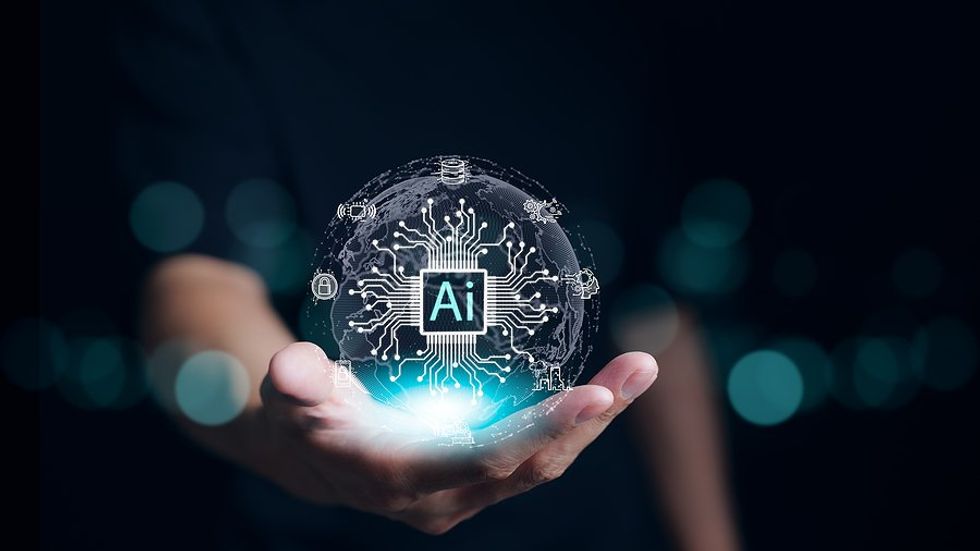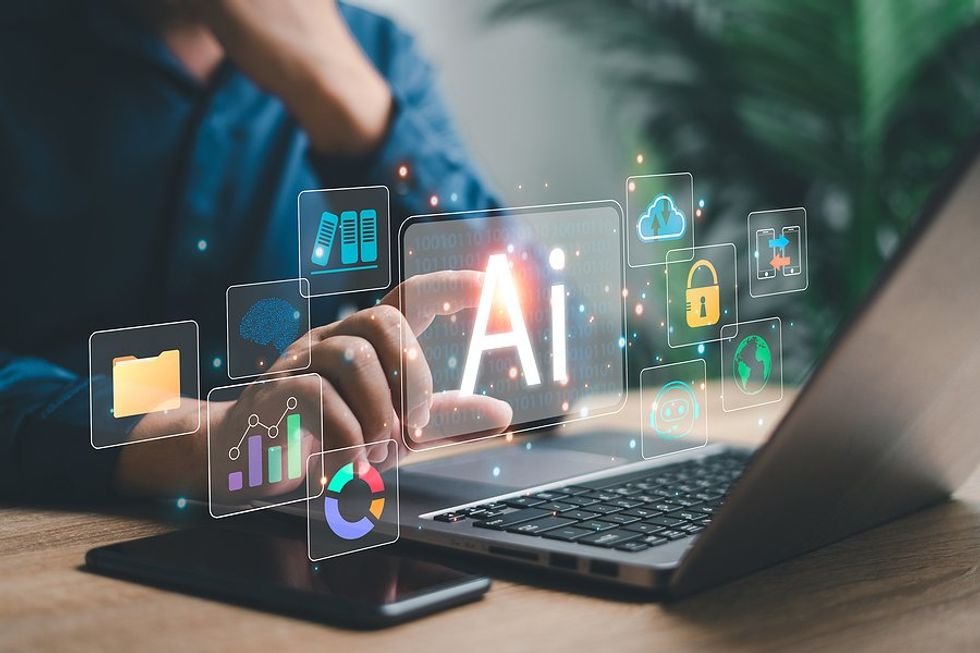Executive Spotlight: How Artificial Intelligence (AI) Will Transform Management

As organizations navigate an era characterized by rapid technological advancements, artificial intelligence (AI) emerges as a transformative force that promises to revolutionize the way management is conceptualized, executed, and optimized. While the benefits of integrating AI into management are numerous, from automating routine tasks to enabling data-driven decision-making of unprecedented accuracy, there are also various disadvantages and potential challenges that leaders need to be aware of during this transformative journey.
We recently asked our leading executives how they think AI will transform management.
Here are their responses...
Ana Smith, Leadership Development & Learning Strategist
I can confidently say that AI is poised to transform management in numerous ways, revolutionizing how businesses operate and leaders make decisions. Here are some key ways AI will transform management:
- Data-Driven Decision Making: AI enables managers to make data-driven decisions by analyzing vast amounts of data quickly and accurately. AI-powered analytics can identify patterns, trends, and insights that human managers might miss, leading to more informed and effective decision-making processes.
- Automating Repetitive Tasks: AI can handle repetitive and mundane tasks, freeing up managers' time to focus on more strategic and creative aspects of their roles. This automation can lead to increased efficiency and productivity across the organization.
- Predictive Analytics: AI can predict future outcomes based on historical data, helping managers anticipate challenges and opportunities. This capability empowers leaders to be proactive in addressing potential issues and optimizing business strategies.
- Enhanced Customer Insights: AI can analyze customer data to provide deep insights into consumer behavior and preferences. This information enables managers to tailor products and services to better meet customer needs and drive customer satisfaction.
- Personalized Leadership Coaching: AI-powered coaching tools can provide personalized guidance to managers, helping them enhance their leadership skills and management capabilities. These tools can identify areas for improvement and offer actionable recommendations.
- Talent Management and HR: AI can streamline the talent acquisition process by screening resumes, conducting initial interviews, and matching candidates with suitable positions. Additionally, AI can analyze employee data to identify patterns that can inform HR decisions related to employee engagement, retention, and performance management.
- Virtual Assistants for Managers: AI-powered virtual assistants can help managers with scheduling, reminders, and organizing their daily tasks. These virtual assistants can provide valuable support to busy managers, keeping them organized and on track.
- Supply Chain Optimization: AI can optimize supply chain management by analyzing demand patterns, inventory levels, and logistics data. This can lead to improved inventory management, reduced costs, and better overall supply chain performance.
- Risk Management: AI can help identify and mitigate potential risks by continuously monitoring data and identifying anomalies. This proactive approach can enhance risk assessment and response strategies.
- Real-Time Insights: AI can provide real-time insights into various aspects of the business, allowing managers to monitor key performance indicators (KPIs) and react swiftly to changing market conditions.
It is crucial for managers and organizations to embrace AI and adapt to these transformations. Proper implementation and understanding of AI's capabilities can lead to improved decision-making, increased efficiency, and competitive advantage in the ever-evolving business landscape.
Ana Smith helps people & organizations achieve their full talent potential by developing and co-creating people strategies and customized solutions, and turning them into impactful outcomes and collaborative relationships, using coaching as the "red thread."
Michael Willis, Sports Business Operations Executive

Image from Bigstock
I look at artificial intelligence (AI) as historical, technological breakthroughs like flying, the automobile, electric lights, and the telephone due to their transformative impact on society.
In comparing AI to these historical discoveries, it’s important to note that while these innovations brought about significant changes, AI’s impact is particularly noteworthy due to its potential to affect nearly every aspect of human life, from work and education to healthcare and entertainment.
Additionally, AI presents unique challenges and considerations, such as ethical concerns, potential job displacement, algorithm bias, and questions about how AI will integrate into our social fabric. As AI advances, its trajectory will likely be shaped by technological progress, societal adoption, regulatory frameworks, and ethical guidelines.
Artificial intelligence (AI) is already impacting various aspects of sports management, and its transformative effects are expected to continue growing. Here are some ways AI could transform management in sports:
Player Activities
- Injury Prevention and Management
- Nutrition and Conditioning
- Scouting and Recruitment
- Game Strategy and Analysis
- Data-Driven Management Decisions
- Sports Analytics and Insights
Game Day Activities
- Fan Engagement
- Ticket Pricing and Sales
- Social Media and Branding
- Referee and Umpire Decisions
Striking the right balance between technology and human expertise will be crucial to successfully harnessing AI’s benefits in the sports industry.
Michael Willis has 18+ years of experience working with accounting & sports organizations and has managed P&Ls of $10M - $125M+ with budgets of $3M-$50M+. He worked for the NFL for 22 1/2 years, mainly with the game officials working on the financial/accounting side of the business.
Lynn Holland, GTM & Rev Gen Consultant

Image from Bigstock
Coming from a perspective of selling operational transformation through technology adoption for efficiency, increased capacity with the same assets, and financial gains, I am a proponent of advancement.
As such, I see impactful advantages for managers to get behind an initiative to infuse AI tools into their management process. At the same time, I caution executives of the potential downside and to anticipate several obstacles when seeking buy-in with their teams:
The Managerial Advantages of AI:
1. Balancing the skill sets, workloads, and availability of subordinates to ensure allocated tasks and resources maximize productivity.
2. Monitoring employee performance metrics in real time to provide immediate training and coaching rather than waiting for formal reviews.
3. Gaining actionable insights as AI spots historical trends and patterns and predicts future trends and outcomes to make better decisions, pivot quickly, and substantiate management decisions for subordinates.
The Downsides & Obstacles:
1. Potential loss in empathetic support, understanding, and personal interaction between managers and their employees.
2. Erosion of managerial critical thinking and decision making without an AI tool.
3. Creating a vibe for employees that they are being surveilled by “Big Brother” with diminished autonomy, protections for personal information, and a sense of personal space.
4. Employee dependence upon turn-by-turn instructions, eroding the same critical thinking and decision making.
5. Employee fear of displacement or a skills gap to incorporate AI tools into their workflow.
Lynn Holland is a business development executive with 18+ years of experience taking operational, IoT & retail technologies, products, & consumer engagement to market with a focus in petroleum & convenience retail.
Lisa Perry, Global Marketing Executive

Image from Bigstock
One of the most significant disruptors in this era of rapid change is artificial intelligence (AI). Nowadays, 77% of businesses are using or exploring AI. Among them, 35% of companies are using AI, and 42% are exploring AI for its implementation in the future. AI is reshaping the landscape of organizational leadership and management in several ways.
- Data-Driven Decision-Making: AI can process vast amounts of data in real-time, providing managers unparalleled insights into customer behaviors, preferences, and sentiments leading to higher engagement and strong brand loyalty.
- Predictive Analytics: Leveraging predictive analytics, managers can anticipate market trends, customer preferences, and potential risks enabling organizations to adapt to changing circumstances and giving them a competitive advantage.
- Enhanced Efficiency: Using AI-powered tools allows management to focus on high-level strategic thinking and fostering innovation.
- Strategic Planning: AI can assist management in formulating well-informed strategic plans by analyzing market trends and competitive landscapes much faster rate.
- Customer Insights: AI-powered analytics can process customer data from various sources, providing comprehensive insights into their preferences, behaviors, and sentiments. Management can tailor products, services, and marketing campaigns to meet customer expectations effectively.
AI is the most transformative technology we will see in this lifetime. We better integrate it into our skill set, leadership, and management practices quickly to add value and ROI to the bottom line.
For a step-by-step guide on how to develop a brand strategy, check out my book How to Develop a Brand Strategy.
Lisa Perry helps companies build leadership brands, driving loyal customers & delivering profitability. She does this through a process that builds brands consumers love. Her goal is to help companies develop, monetize, and grow their brands.
Duncan Prior, Digital Transformation Consultant

Image from Bigstock
Artificial intelligence has arrived and is here to stay and there are three areas where AI will transform management:
1. Managing the current emergence of AI
Robert Glazer devoted a "Friday Forward" weekly article to discussing the emergence of AI in the context of all other technology innovations and I reflect on parallels with the dot-com era. The article breaks down the steps in the innovation wave that engulfs us until things finally settle down and organizations can refocus on their objectives. For now, managers can expect the subject of AI to surface in most conversations so they will have to have a plan for dealing with the current hype.
2. Managing legacy
Perhaps the biggest challenge any organization faces is the delivery of digital transformation and change. From a technology perspective, the key reason is the legacy IT infrastructure that most companies continue to run. Cloud platforms and mobile devices offer the promise of supporting an agile business; however, getting there is rarely straightforward. Without that transformation, AI will not deliver any benefits and, if introduced on top of an aging business platform, will only introduce more complexity and chaos.
However, AI will deliver on that promise either for new business models or for organizations that have been able to transform, so the pressure on those managing a legacy business will increase over the coming years.
3. The day-to-day possibilities
For those running flexible IT systems, help is at hand that will enable managers to free up time to transform their organization. AI tools provide the opportunity to act as a "co-pilot" for staff. Take the example of submitting proposals for new business. This can be a time-consuming exercise with often a small chance of success. Most of the time is spent assembling the proposal response which takes up too much of the team’s time when it could be focussed on the true value of its offering. Using AI to assist with this work isn’t cheating. Rather, it is helping humans to perform their jobs as effectively as possible. And, in this example, AI can help people focus on opportunities that they have the most chance of winning!
Duncan Prioris a consultant specializing in digital transformation delivery and the host of the Making Things Work podcast series. He enjoys running, reading, and listening to music.
How do you think AI will transform management? Join the conversation inside Work It Daily's Executive Program.
- Executive Spotlight: What Automation Means For The Future Of Work ›
- 8 Things You Need To Know About Project Management Right Now ›
- Rebranding In The Music World: How Artists Transform Their Image For Impact ›
- The Power Of Digital Transformation For Modern Enterprises ›
- Navigating The Future Of Work In The Digital Age - Work It Daily ›
- The Impact Of Email, SMS & Marketing Automation Strategies - Work It Daily ›
- Unleashing Individuality: Empowering People Through AI ›
- 4 Ways AI Is Impacting eDiscovery & Review In 2024 & Beyond - Work It Daily ›
- 4 Problems The Entertainment Industry Is Facing - Work It Daily ›
- 11 Signs Your Operations Are Undermining Your Marketing Efforts - Work It Daily ›
- Unleashing The Potential Of STLMs For Business Efficiency - Work It Daily ›
- Future Of Work: How Will AI Impact Workplaces? - Work It Daily ›
- Leading With Technology: The Future Of Installation & Repair - Work It Daily ›

 Bigstock
Bigstock Bigstock
Bigstock Bigstock
Bigstock


